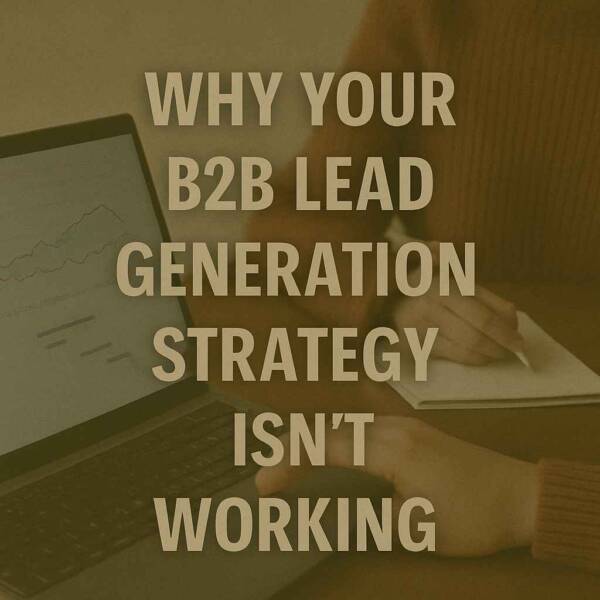The Psychology Behind B2B Sales and Decision-Making
Business-to-business (B2B) sales involve selling products or services from one business to another. It is a complex process that relies heavily on psychology. Understanding how people think and make decisions can help businesses succeed in B2B sales. This article explores the psychology behind B2B sales and decision-making. We will look at what influences buyers, how relationships matter, and the role of trust. By understanding these factors, companies can improve their sales strategies.

The Importance of Understanding Buyer Psychology
![]()
Understanding buyer psychology is crucial for B2B sales. Buyers are not just looking for products; they seek solutions. They want to solve problems and achieve goals. Here are some key points about buyer psychology:
- Buyers often have specific needs and challenges.
- Emotions play a big role in decision-making.
- Buyers want to feel confident in their choices.
- They look for value, not just price.
- Relationships with sellers can influence decisions.
- Trust is essential for long-term partnerships.
By recognizing these factors, businesses can tailor their approach to meet buyers’ needs. A good understanding of psychology helps build better connections.
For example, a software company may find that its clients prefer personalized demonstrations. This shows them exactly how the product can help their business.
Studies show that emotional connections can increase sales. When buyers feel understood, they are more likely to buy. This highlights the importance of empathy in B2B sales.
In summary, knowing buyer psychology is key to successful B2B sales. It allows businesses to create stronger relationships and provide better solutions.
Factors Influencing B2B Buying Decisions
![]()
Many factors influence B2B buying decisions. These factors can vary from one business to another. Here are some important ones:
- Cost: Price is always a consideration.
- Quality: Buyers seek high-quality products.
- Reputation: The seller’s reputation matters.
- Customer Service: Good support can sway decisions.
- Reviews and Testimonials: Positive feedback builds trust.
- Relationship History: Past experiences shape future choices.
Take, for example, a manufacturing company looking to buy machinery. They will compare prices but also consider quality and service. If they hear good things about a supplier, they are more likely to choose them.
Statistics show that 79% of B2B buyers conduct online research before making a purchase. This means businesses must have a strong online presence to attract customers.
Additionally, peer recommendations can be very powerful. A buyer may trust a colleague’s opinion more than an advertisement.
In conclusion, many elements affect B2B buying decisions. Companies must address these factors to win sales.
The Role of Trust in B2B Transactions
![]()
Trust is vital in B2B sales. Businesses often work together for a long time. Here’s why trust is so important:
- Long-Term Relationships: Trust fosters loyalty.
- Reduced Risk: Trust makes buyers feel safer.
- Better Communication: Trust leads to open dialogue.
- Collaboration: Trust encourages teamwork between businesses.
- Increased Sales: Trust can lead to repeat business.
- Positive Reputation: Trusted companies attract more clients.
A survey found that 70% of B2B buyers say trust is the most important factor in their purchasing decisions. This shows how critical it is for businesses to build trust.
For instance, a tech firm that consistently delivers quality products builds trust over time. Clients feel secure in their choice to continue working with them.
Moreover, transparent communication enhances trust. If a supplier is honest about delays or issues, buyers appreciate the openness.
In summary, trust is a cornerstone of successful B2B transactions. Companies should prioritize building and maintaining trust to thrive.
The Impact of Emotional Intelligence on Sales
![]()
Emotional intelligence (EI) plays a significant role in sales. It involves understanding one’s emotions and those of others. Here’s how EI impacts B2B sales:
- Empathy: Helps understand client needs.
- Communication: Improves interactions with clients.
- Conflict Resolution: Allows for smoother problem-solving.
- Relationship Building: Strengthens connections with clients.
- Adaptability: Helps adjust strategies based on buyer reactions.
- Decision Making: Enhances the ability to read situations.
A salesperson with high emotional intelligence can connect better with clients. They listen actively and respond appropriately to concerns.
For example, when faced with objections, an emotionally intelligent salesperson can empathize with the buyer’s worries. This can turn a potential no into a yes.
Research indicates that teams with higher emotional intelligence perform better in sales. They achieve greater success because they understand and cater to client emotions.
In conclusion, emotional intelligence greatly affects B2B sales. Companies should train their sales teams to improve these skills.
Building Strong Relationships in B2B Sales
![]()
Building strong relationships is essential in B2B sales. Relationships can determine whether a deal is closed. Here are key aspects of relationship-building:
- Personal Connections: Get to know clients personally.
- Regular Communication: Stay in touch frequently.
- Follow-Up: Check in after sales to ensure satisfaction.
- Feedback: Ask for and act on customer feedback.
- Networking: Attend industry events to meet potential clients.
- Value-Added Services: Offer additional help beyond the sale.
Consider a consulting firm that invests time in getting to know its clients. They build rapport by understanding client goals and challenges. This leads to lasting partnerships.
Statistics show that businesses with strong customer relationships see a 60% increase in repeat sales. This emphasizes the importance of nurturing relationships.
Moreover, relationship-building can lead to referrals. Happy clients are more likely to recommend services to others.
In conclusion, strong relationships are vital for B2B sales success. Companies should focus on connecting with clients on a personal level.
The Decision-Making Process in B2B Sales
![]()
The decision-making process in B2B sales can be complex. Many people are involved in the process. Here are the main steps in this process:
- Problem Recognition: Identifying a need or issue.
- Information Search: Gathering data about solutions.
- Evaluation of Options: Comparing different products and services.
- Purchase Decision: Choosing a vendor and making a purchase.
- Post-Purchase Evaluation: Assessing the decision after the sale.
- Feedback Loop: Providing input back to the seller.
For example, a company may realize it needs new software. They will research options, read reviews, and compare features. This thorough evaluation process helps ensure they make the right choice.
Research shows that 63% of B2B buyers prefer to conduct research online. This means businesses must provide valuable content to guide buyers through their decision-making journey.
Additionally, understanding the decision-makers within a company is crucial. Different individuals may have varying priorities and concerns.
In conclusion, the B2B decision-making process is multi-faceted. Companies should support buyers at each stage to facilitate smoother transactions.
Using Data and Analytics in B2B Sales Strategies
![]()
Data and analytics play an important role in B2B sales strategies. They provide insights into buyer behavior and preferences. Here’s how businesses can use data effectively:
- Identifying Trends: Analyze patterns in buyer purchases.
- Targeting: Use data to reach specific audiences.
- Performance Measurement: Track sales team effectiveness.
- Personalization: Tailor offers based on buyer history.
- Forecasting: Predict future sales trends and demands.
- Improving Customer Experience: Use feedback to enhance services.
For instance, a company might analyze past sales data to identify which products are popular. This allows them to focus marketing efforts on those items.
Statistics indicate that companies using data-driven strategies see a 5-6% increase in productivity. This highlights the power of data in driving sales success.
Moreover, data can help in segmenting customers. By understanding different buyer types, businesses can craft targeted messages.
In conclusion, leveraging data and analytics is essential for effective B2B sales strategies. Companies should invest in these tools to enhance their performance.
Conclusion: Key Takeaways on B2B Sales Psychology
![]()
In summary, the psychology behind B2B sales and decision-making is complex yet fascinating. Here are the key takeaways:
- Understanding buyer psychology is crucial for success.
- Multiple factors influence B2B buying decisions.
- Trust is essential for long-term relationships.
- Emotional intelligence enhances sales effectiveness.
- Strong relationships lead to repeat business.
- The decision-making process is multi-step and involves many people.
- Data and analytics are valuable tools for improving strategies.
By focusing on these aspects, businesses can improve their B2B sales outcomes. Understanding how buyers think and make decisions is the key to success in this competitive market.




